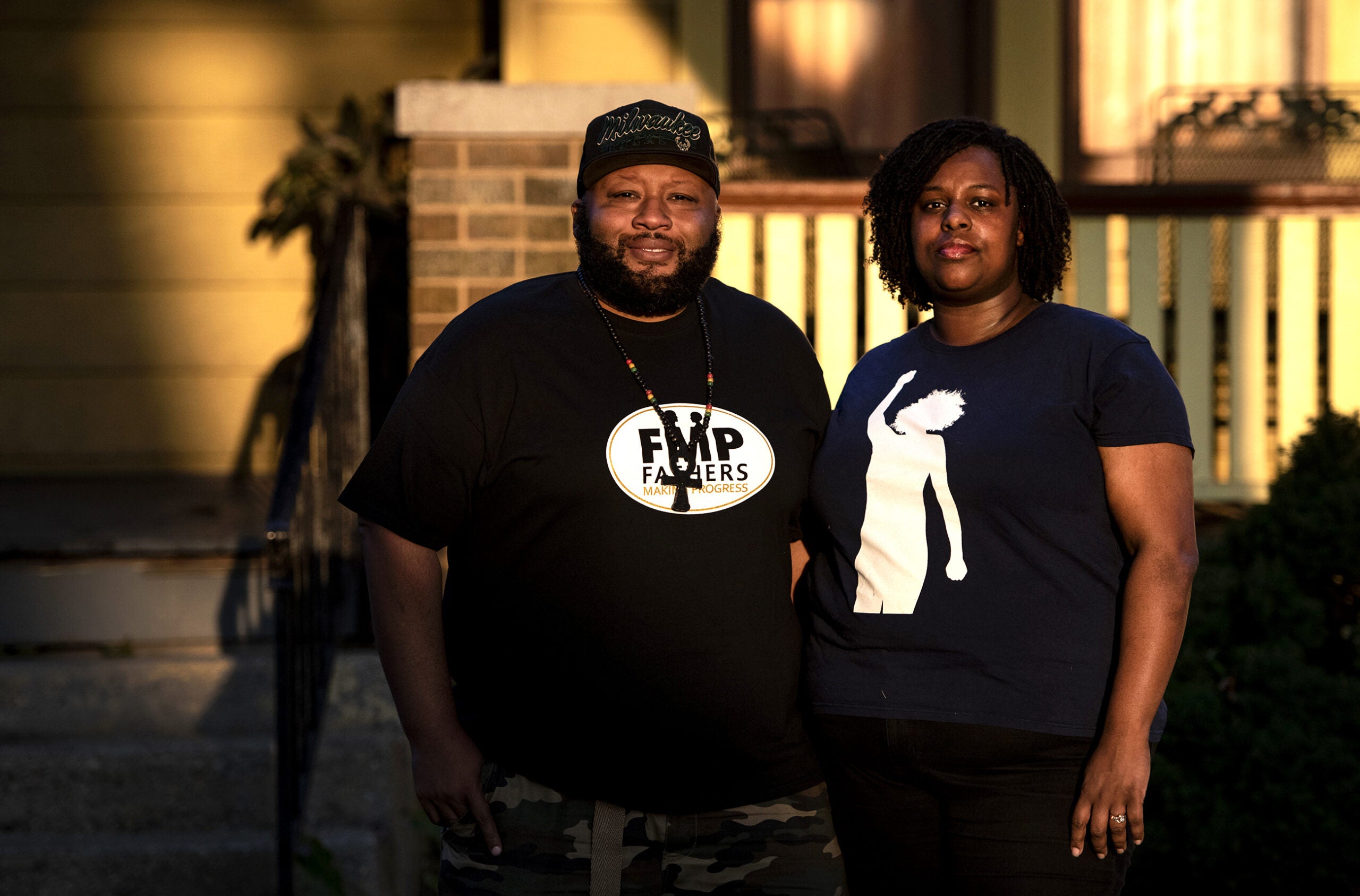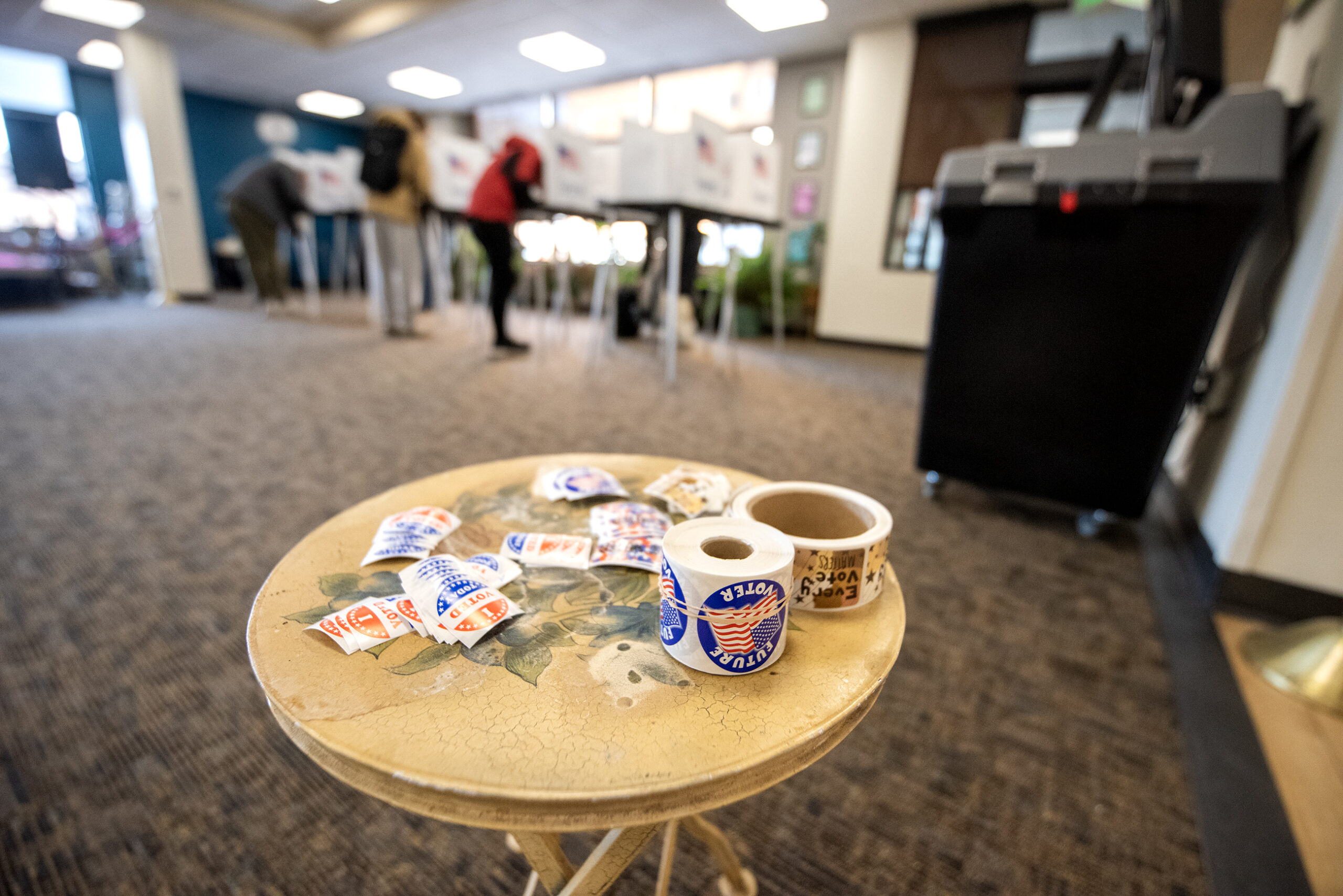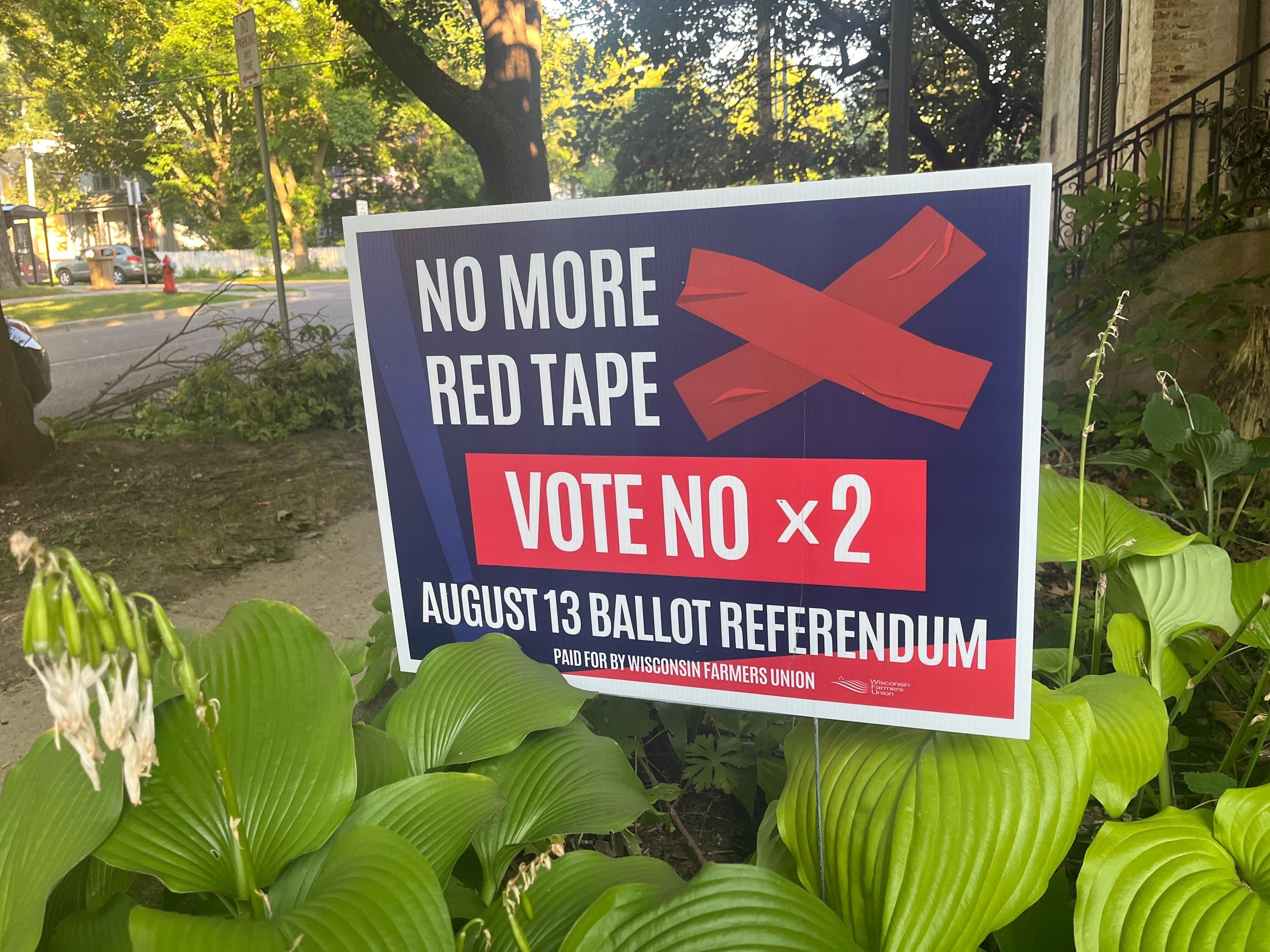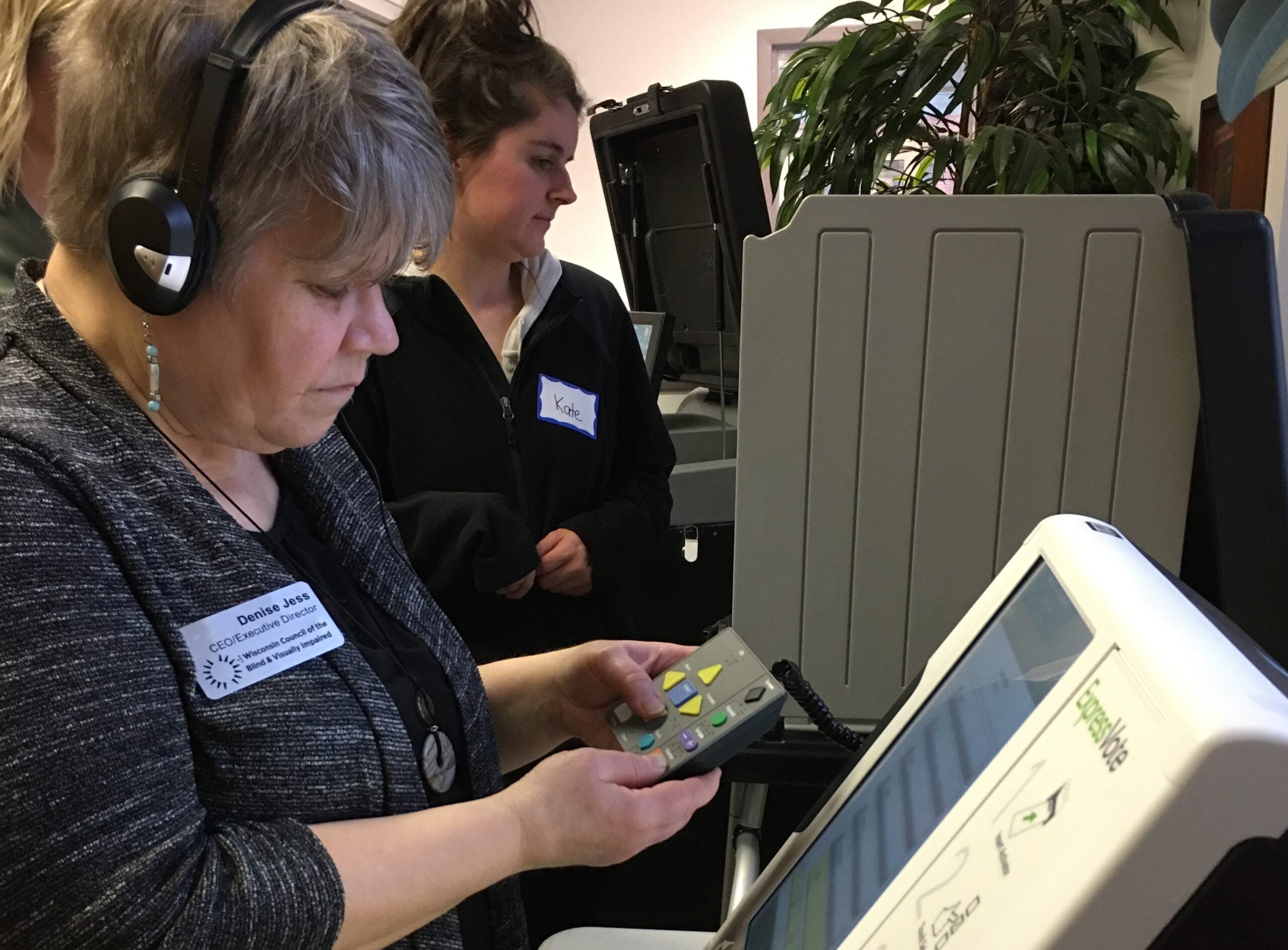Voting has always been a priority for Chrystal and Terron Edwards. But in April, they decided it could be dangerous for them to go to the polls.
Terron is a diabetic, their son has spina bifida and their daughter has asthma.
All three would have been more at risk for severe symptoms if they caught the coronavirus, which began spreading across the state in March and led to the decision to close schools and some businesses, and to issue a stay-at-home order. So the couple planned to vote absentee and ordered their ballots in mid-March, but they never received them.
News with a little more humanity
WPR’s “Wisconsin Today” newsletter keeps you connected to the state you love without feeling overwhelmed. No paywall. No agenda. No corporate filter.
The couple felt disenfranchised. And the experience left Chrystal feeling like the system is broken.
“It’s like I could literally go on YouTube or Google and figure out how to fix my dryer,” Chrystal said. “But there is no instructional video on how to fill out an absentee ballot.”
April was the first time Terron, a community organizer in Milwaukee, hadn’t voted in 20 years.
“Part of my job is to get other people to vote,” Terron said. “You know, the circumstances were understandable, but I still felt like a hypocrite to tell other people to vote. But I just knew I couldn’t risk it.”

Voters stand in a blocks-long line as the Milwaukee city skyline rises in the background on April 7, 2020, during the primary election. Coburn Dukehart and Lauren Fuhrmann/Wisconsin Watch
Attitudes have changed about the coronavirus pandemic. But for voters at high risk for severe complications of COVID-19, the disease can be deadly. Wisconsin has made great strides since the April election to make absentee voting easier. But some worry the challenges they faced in the spring could keep them from voting in November.
The Edwardses were among more than a dozen Wisconsin plaintiffs who filed a lawsuit in April, six days after the election, trying to change several provisions of Wisconsin’s voting laws for the next election. This included voter ID laws and provisions requiring people voting absentee by mail to get another person to witness their signature.
A coalition of lawyers for the state and national Democratic Party and nonprofit groups say thousands of voters will again be disenfranchised in November if Wisconsin’s current voting law doesn’t change. So far, a couple requests have been granted in federal court.
In his September ruling, federal Judge William Conley extended the deadline for counting absentee ballots by six days and extended the online and mail-in registration deadlines by a week.
But he rejected the attempt to waive voter ID requirements.
“Whatever the problem was with the uncertainty with COVID-19 for a few weeks where people might have locked their door and not seen anyone, we’re well past that now,” Conley said in August, before the ruling.
Wisconsin Public Radio, © Copyright 2026, Board of Regents of the University of Wisconsin System and Wisconsin Educational Communications Board.







